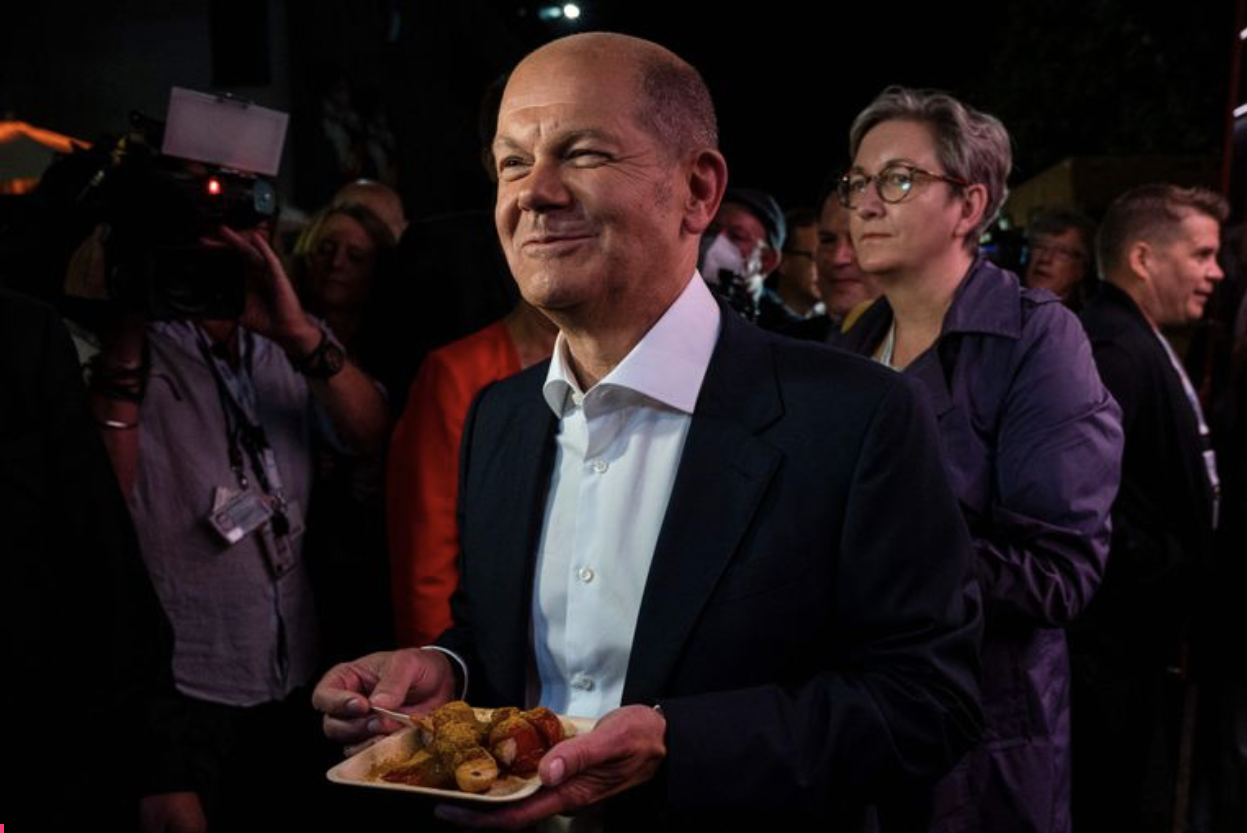
With Germany entering a critical phase of intense coalition talks between the Social Democrats, Greens, and Free Democrats (FDP), the change of government presents an exciting opportunity for the introduction of new policies to fix the food system and improve child health. The so-called ‘traffic-light’ coalition, after the three parties’ signature colours of red, yellow and green, looks set to be led by the SPD’s Olaf Scholz.
During the election campaign, the SPD repeatedly promised to regulate adverts for unhealthy food, particularly those geared towards children. Earlier this year, Scholz’s party claimed that children are becoming “target objects for marketing” at an earlier age and added that they want to make it easier for parents to provide a healthy diet for their children and restrict marketing aimed at children for unhealthy products such as sweets, soft drinks and fast food. In their Executive Board Paper on Consumer Policy, the SPD outlined that they plan to:
- Prohibit junk food marketing directed at children for products high in fat, salt or sugar (HFSS).
- Mandate companies to label their foods using the French ‘nutri-score’ system, which ranks food from -15 for the ‘healthiest’ product to +50 for those that are ‘less healthy’.
- Introduce mandatory school food standards to ensure that healthy free school meals are implemented.
The Greens share the SPD’s approach on improving child health and have additionally called for “economic incentives” for recipe reformulation of HFSS foods, and for advertising rules that are consistent with the WHO criteria. In a similar vein, the FDP wants to implement “transparent nutritional information” on food packaging and early nutritional education in daycare and schools.
These commitments sound very promising and hold the possibility of lowering obesity rates in Germany which, as of 2017, currently sit at 23.6%. Lower than the UK, which sits at 26.9%, but on a similar trajectory.
So how do these possible new policies compare with the rest of the world, particularly the UK? Back in June, we wrote this article, comparing and evaluating G7 – Canada, France, Germany, Italy, Japan, the UK, and the US – healthy food policies. We found that a lot of the policies being implemented in the UK were really world-leading, particularly the following:
- Junk food marketing: A commitment to restrictions on TV and online
- Subsidies: Healthy Start Vouchers for pregnant women and women with young children to purchase fruit and veg
- Taxes: Tax on drinks with added sugar
Germany, on the other hand, scored relatively low in these areas. For example:
- Junk food marketing: considering junk food marketing restrictions. Voluntary approach restricting health claims on HFSS foods when marketing to u14s
- No subsidies
- No taxes
If the new coalition government implements the policies laid out in the three party manifestos, the German public faces an optimistic and healthy future. But the negotiations are still in full swing, and the parties must view child health as a priority going forward. Foodwatch, the consumer watchdog, is doing brilliant work to ensure that obesity and child health is on the agenda for negotiations. You can see their petition to Olaf Scholz here, which reminds him of his campaign promises and calls for the health of children in Germany to take precedence over the interests of the food industry.
As Foodwatch highlights, “the coalition negotiations will determine whether effective measures will finally be taken against obesity in children.” Will the new German government take this opportunity to become a world leader in ensuring that everyone across the country has access to affordable and nutritious food?
By Suraiya Rahman and Iona Cable